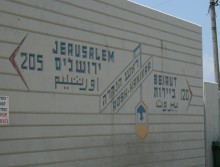
Given Hezbollah sees Israel as their archenemy, it’s not often that Israel and the terror group sound hopeful about the same thing. Yet over the weekend, both made positive comments about a potential maritime border deal between Lebanon and the Jewish State that will affirm the rights of both sides to natural gas fields. And if the deal goes really well, Israel believes it will ultimately reduce the threat posed by Hezbollah.
Israeli Prime Minister Yair Lapid, commenting on the latest draft proposal from the United States mediator in a cabinet meeting on Sunday, noted the arrangement would enable Lebanon to also tap into disputed natural gas reserves in the Mediterranean Sea. As part of the arrangement, Lapid said not only would Israel receive “the share we deserve” of the natural gas, but the economic benefit for the Lebanese nation could also make them more peaceable towards Israel.
“Such a field will weaken Lebanon’s dependence on Iran, restrain Hezbollah and promote regional stability,” said Lapid, apparently believing an economically-stronger Lebanon can better combat Iran’s financial investment in Hezbollah that enables the terror group to wield powerful influence.
Lapid, in comments to the Israeli cabinet published by Israel, also believes the deal broadly meets his country’s goals. “For over a decade, Israel has been trying to reach this deal. The security of the north will be strengthened. The Karish [gas] field will operate and produce natural gas. Money will flow into the state’s coffers and our energy independence will be secured. This deal strengthens Israel’s security and Israel’s economy.”
Hezbollah leader Hassan Nasrallah, in a speech published by Al-Manar in Arabic and translated by Google, said that the Lebanese government had received the proposal while he expressed hope that “things will be good.” Said the terror leader, “If the result is good, this will open new and good horizons.”
Nasrallah deferred to the Lebanese government to make a final decision on the deal, and the initial response on that front is promising. Lebanese Parliament Speaker Nabih Berri told Asharq Al-Awsat that “in principle” the proposal “meets Lebanese demands”, specifically noting that it only sets a maritime border and does not settle the disputed land border between the two countries.
The Asharq Al-awsat said the Lebanese leadership still needed to review the proposal and that there would be what Deputy Parliament Speaker Elias Bou Saab called “extraneous” amendments to the offer.
For Israel, Lapid said the deal is undergoing legal review and they are also “discussing the final details, so it is not yet possible to praise a done deal”. Nonetheless, he sounded pleased with the result so far. Said Lapid, “As we have demanded from the start, the proposal safeguards Israel’s full security-diplomatic interests, as well as our economic interests.”
(By Joshua Spurlock, www.themideastupdate.com, October 2, 2022)
